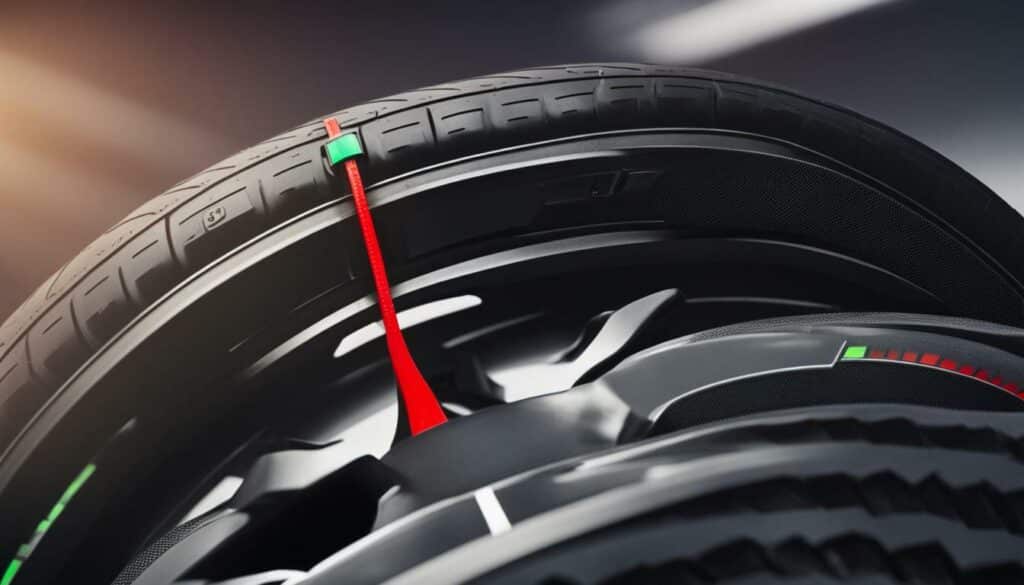Welcome to my article on write off cars in New Zealand! It’s important to understand what a write off car means and how it can impact you as a vehicle owner. In this first section, we’ll explore the definition of a write off car, its meaning, and what it entails for vehicle owners in the country.
Key Takeaways:
- A write off car in New Zealand refers to a vehicle that has been deemed uneconomical, unsafe, or impractical to repair.
- The classification of a car as a write off is determined based on factors such as the damage severity, repair costs, and safety regulations.
- Owning a write off car in New Zealand can have several implications, such as restrictions on roadworthiness certifications, insurance coverage limitations, and difficulties in resale or trade-ins.
Criteria for Write Off Car Classification in New Zealand
Understanding how a car is classified as a write off in New Zealand is essential for vehicle owners. The criteria for determining whether a car is a write off are outlined in the Land Transport Rule: Operator Licensing 2017. According to the rule, a car is classified as a write off when:
- The vehicle has sustained significant structural damage that affects its safety or performance.
- The cost of repairs exceeds the value of the vehicle before the damage occurred.
- Repairs cannot be carried out to meet the required safety standards.
It’s important to note that the threshold for determining whether repairs are economically viable varies depending on the age, condition, and make of the vehicle. For example, a newer car with less damage may be more likely to be repaired than an older car with the same amount of damage.
The write off classification is further divided into two categories:
- Statutory Write Off: This means that the car cannot be repaired or returned to the road under any circumstances. The vehicle must be de-registered and can only be used for parts or scrap.
- Repairable Write Off: This means that the car can be repaired, but only after meeting specific safety and structural requirements outlined by the NZ Transport Agency. Once the car is repaired, it must undergo a series of inspections to ensure it meets the necessary standards before being re-registered.
It’s crucial to keep in mind that the classification of a write off car is not subjective and is determined by a qualified assessor following a detailed inspection of the vehicle.
Criteria for Write Off Car Classification in New Zealand
The following are the main criteria for classifying a car as a write off in New Zealand:
| Criteria | Description |
|---|---|
| Structural Damage | The vehicle has sustained significant structural damage that affects its safety or performance. |
| Repair Costs | The cost of repairs exceeds the value of the vehicle before the damage occurred. |
| Safety Standards | Repairs cannot be carried out to meet the required safety standards. |
Understanding these criteria can help vehicle owners make informed decisions about whether to repair or replace a write off car.
The Implications of Owning a Write Off Car in New Zealand
As I mentioned earlier, owning a write off car in New Zealand can come with certain implications. These implications can affect the vehicle’s roadworthiness certifications, insurance coverage, and resale or trade-in options.
Firstly, it’s important to note that a write off car may not be legally roadworthy, even if it has been repaired. The New Zealand Transport Agency has strict regulations regarding vehicle safety, and a write off car may not meet those standards. As a result, owners may face restrictions on obtaining roadworthiness certifications, which can limit their ability to drive the vehicle legally on public roads.
Secondly, insurance coverage for write off cars in New Zealand can be limited. Some insurance providers may refuse to cover write off cars altogether, or offer reduced coverage due to the higher risk associated with these vehicles. As a result, owners may be forced to pay higher premiums or seek alternative insurance options.
Finally, owning a write off car can make it difficult to sell or trade-in the vehicle. Prospective buyers may be hesitant to purchase a write off car due to concerns about its safety and reliability, and dealerships may offer less money for trade-ins or refuse to accept write off cars altogether.
In summary, owning a write off car in New Zealand can have significant implications. It’s important for vehicle owners to be aware of these implications and consider them when making decisions about whether to repair, insure, or sell their write off car.
The Write Off Car Process in New Zealand
When a car is classified as a write off in New Zealand, the process involved can be complex and daunting. This section will provide a step-by-step guide to navigating the write off car process in New Zealand, including the regulatory requirements and documentation needed.
Assessment Stage
The first stage of the write off car process in New Zealand involves an assessment of the vehicle’s damage. This assessment is usually conducted by an insurance company or a qualified mechanic. They will determine the extent of the damage and the repair costs involved.
Classification Stage
Once the assessment is complete, the vehicle will be classified as either a repairable write off or a statutory write off. A repairable write off is a vehicle that can be repaired to a roadworthy condition, while a statutory write off is a vehicle that cannot be repaired and can only be used for parts or scrap.
Notification Stage
Once the vehicle has been classified, its status as a write off will be notified to the NZ Transport Agency. They will update the vehicle’s registration details and issue a Vehicle Status Report, stating the vehicle’s classification and its current status.
Repair Stage
If the vehicle is classified as a repairable write off, the next stage is to repair the vehicle to a roadworthy condition. It is important to note that repairs must be carried out in accordance with safety regulations and approved repair procedures. Once the repairs are complete, the vehicle must then undergo a Warrant of Fitness inspection to ensure it meets road safety requirements.
Re-registration Stage
Once the vehicle has passed the Warrant of Fitness inspection, it can then be re-registered with the NZ Transport Agency. The registration process will include providing the necessary documentation, including the Vehicle Status Report and proof of repairs carried out.
Disposal Stage
If the vehicle is classified as a statutory write off, it cannot be repaired and can only be used for parts or scrap. The vehicle must be disposed of in accordance with NZ write off vehicle regulations, which may include taking the vehicle to a licensed dismantler or salvage yard.
Overall, the write off car process in New Zealand can be challenging. It is important to follow the necessary procedures and regulations to ensure the vehicle is handled appropriately and safely.
Identifying a Write Off Car in New Zealand
Identifying a write off car in New Zealand can be challenging, but it is essential to know how to spot the signs if you are looking to buy a used vehicle. In this section, I will provide guidance on how to identify a write off car in New Zealand, using various methods.
Physical Damage Indicators
The most obvious signs of a write off car are visible physical damages, such as dents, scratches, or crumpled panels. However, not all cars with visible damage are write offs, and some may have been repaired to a roadworthy standard. Still, inspecting the exterior and interior of the vehicle can give you an idea of its condition and potential write off status.
Vehicle History Checks
Another way to identify a write off car in New Zealand is by obtaining a vehicle history report from the New Zealand Transport Agency (NZTA). The report will show if the car has ever been written off, and if so, the type of damage and the date of the write off. You can also use private vehicle history check services that provide additional details on the car’s history, including any outstanding debts or stolen status.
Inspection Procedures
If you are still unsure whether a car is a write off, you can have it inspected by a qualified mechanic or engineer. They can conduct a thorough assessment of the vehicle’s condition and provide an evaluation report. The inspection report can reveal any hidden damages or defects that may not be visible to the naked eye, which can help you make an informed decision.
Remember, identifying a write off car in New Zealand is not an easy task, and there is no foolproof method to determine if a car has been written off. Therefore, it is always wise to exercise caution when buying a used car and conduct your due diligence before making any purchase.
Write Off Car Insurance in New Zealand
Insuring a write off car in New Zealand can be a challenging and complicated process. Many insurance companies are hesitant to offer coverage for these vehicles due to the higher risks associated with their roadworthiness and safety. However, it is still possible to obtain insurance for a write off car, provided you follow certain guidelines and considerations.
Before purchasing insurance for your write off car, it is essential to understand the regulations set forth by the New Zealand government. According to these regulations, a write off car must undergo a thorough assessment and repairs to meet safety and roadworthy standards before it can be insured and driven on public roads.
Furthermore, the insurance company will assess the damage severity, repair costs, and vehicle history before providing coverage. In many cases, write off car insurance premiums may be higher compared to regular car insurance due to the increased risks and potential for future repairs.
If you are considering purchasing insurance for your write off car, it is essential to do your research and shop around for the best coverage options. Some insurance companies specialize in write off car insurance, so it may be helpful to consult with a specialist who can guide you through the process and offer tailored coverage options.
It is also crucial to read the fine print of your insurance policy carefully, as there may be specific limitations on coverage for write off cars. For example, some policies may only cover third-party liability and not comprehensive coverage, or only provide coverage up to a certain amount.
In summary, obtaining insurance for a write off car in New Zealand requires adherence to the government regulations, comprehensive research, and careful consideration of the coverage options available. With the right approach, you can ensure that your write off car is properly insured and roadworthy.
Conclusion
In conclusion, as a professional copywriting journalist, I strongly recommend that vehicle owners in New Zealand understand what a write off car means and its implications. Knowing the classification criteria, identification methods, and insurance considerations can save you from potential financial loss and legal complications.
It is critical to remember that owning a write off car in New Zealand comes with restrictions and requirements that must be adhered to. You must obtain the necessary certifications, provide accurate documentation, and comply with statutory regulations.
Stay Informed
If you suspect that a vehicle you are interested in purchasing has been classified as a write off or has hidden damages, seek professional advice and perform a vehicle history check.
By staying informed and vigilant, you can protect yourself and make informed decisions when dealing with write off cars in New Zealand.
FAQ
Q: What is a write off car in New Zealand?
A: A write off car in New Zealand refers to a vehicle that has been classified as uneconomical or unsafe to repair by an insurance company or regulatory authority.
Q: How is a car classified as a write off in New Zealand?
A: The classification of a car as a write off in New Zealand is determined by factors such as the severity of damage, repair costs, and compliance with safety regulations.
Q: What are the implications of owning a write off car in New Zealand?
A: Owning a write off car in New Zealand may result in restricted roadworthiness certifications, limited insurance coverage, and difficulties in resale or trade-ins.
Q: What is the process for a car to be declared a write off in New Zealand?
A: The write off car process in New Zealand involves various stages, including assessment, documentation, and disposal, in accordance with regulatory requirements.
Q: How can I identify a write off car in New Zealand?
A: You can identify a write off car in New Zealand by looking for physical damage indicators, conducting vehicle history checks, and following inspection procedures.
Q: How does write off car insurance work in New Zealand?
A: Insuring a write off car in New Zealand can be challenging due to coverage limitations. It is important to consider options for obtaining insurance and understand the impact on premium rates.




